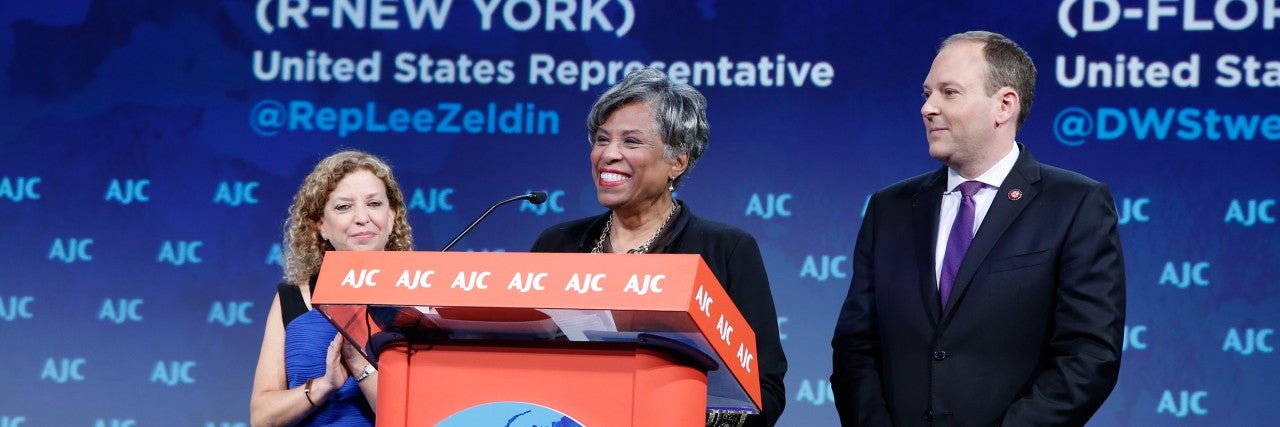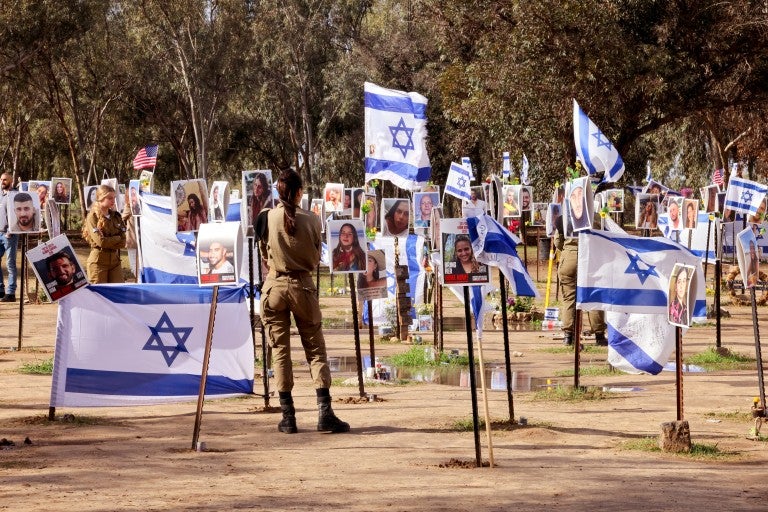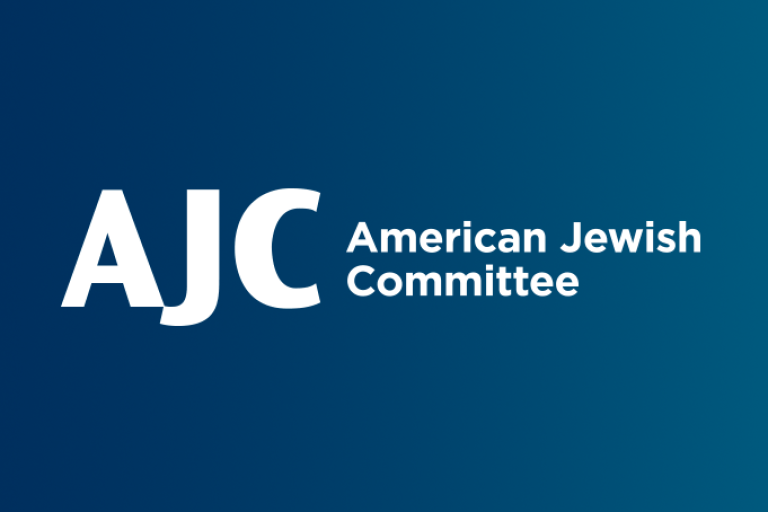January 19, 2020
After a white nationalist opened fire on a black church in Charleston, SC, killing nine people, and another like-minded gunman killed 11 worshipers inside a synagogue in Pittsburgh, PA, U.S. Rep. Brenda Lawrence (D-MI) decided it was time for lawmakers to unite against a common enemy.
Last year, she invited black and Jewish members of the House to form the Black Jewish Congressional Caucus to stay informed and formulate policies to combat hate and promote equality for both communities. Lawrence and two other founding chairs– Reps. Debbie Wasserman Schulz (D-FL) and Lee Zeldin (R-NY) – announced the caucus last June at the 2019 AJC Global Forum.
Since then, Jews have been attacked on the streets, in a kosher market, and in a rabbi’s home by suspects identified as African American. Tense discussions about gentrification have included antisemitic slurs.
Ahead of Martin Luther King Jr. Day, a federal holiday marking the birth of the civil rights leader, Lawrence sat down with AJC to talk about the purpose and progress of the caucus and about an upcoming hearing in New York to make sure both the black and Jewish communities can voice their concerns at the highest level.
This conversation has been condensed and edited for clarity. You can hear more of the interview with Lawrence and other caucus chairs on an upcoming episode of People of the Pod.
What was the original purpose of the Black Jewish Congressional Caucus?
I went to my colleagues and asked them if they would be interested in forming a Black Jewish Caucus because I have seen an uptick in divisiveness and racial tension. Hate crimes have been reported as increasing.
We have a such a strong and long history of black America and the Jewish community coming together in those times when our country lost its way. We have shared experience, between the Holocaust and slavery, of being a people oppressed for no other reasons except for who we are. We know and we feel the stereotypes and tensions often placed on us as black and Jewish citizens in this country.
I can tell you I was so impressed with the support and willingness in a bipartisan way to form the caucus.
What are the mutual areas of concern that caucus members want to address?
It’s discrimination. It’s racism. It’s xenophobia. I often go back to Martin Luther King – our unity is born of our common struggle for centuries, not only to rid ourselves of bondage but, to make oppression of any people by others impossible.
Our objectives are to make sure we are uniquely informed and aware of situations where we see racism not being addressed properly or being nurtured, and to pass policies.
If ever we doubt how powerful we are united it’s that visual of us walking together across the Pettus bridge united and defiant. The clock is still ticking, and it looks like it’s being rolled back, and we are being called to action again to stand up against racism.
For which issues of primary concern to the black community can the Jewish community lend more support and advocate? Likewise, for what primarily Jewish concerns can the black community more forcefully advocate?
Institutional racism is our biggest challenge – when it comes to education, when it comes to housing, when it comes to the criminal justice system. The Jewish community can help by lending a voice to the black community and pointing out those things that are wrong. In the black community what we can do is make sure that we are calling out the stereotypes against the Jewish community.
We are going to have a Holocaust Remembrance Day coming up very soon. We also have Juneteenth, which is the day that marks the end of slavery in America. We have Martin Luther King Day where we celebrate the civil rights movement. These are ceremonial times that we remember in our history. I think it’s extremely important that the black and Jewish communities never allow the history of oppression for either of our people to be forgotten. There are some people who like to say the Holocaust did not happen. There are people who say ‘Well, black people sold each other into slavery. So what’s the big deal?’ We cannot allow the history, as horrific as it is, to be forgotten. That’s something else that we uniquely can do as citizens of this country, and as survivors.
You mentioned that iconic image on the Pettus Bridge. But those days are far behind us. How can federal lawmakers and local leaders alleviate the tensions that have developed over the years between the two communities?
If we have the unique responsibility of passing laws and policies and enforcing the Civil Rights Act, we as members of Congress should be mandated to take bias training. Are we aware, are we sensitive to our laws and policies?
When we talk about what we can do specifically with the Black Jewish Caucus, we are the gatekeepers of freedom and rights in America. I sit on government oversight. I sit on appropriations. How do we fund programs in America? How do we ensure our justice system is held accountable, that we collect data, that we make sure we mandate training, that we are using our FBI to identify those hate groups?
Social media now has taken racism and the growth of this domestic terrorism to a whole other level. So we are constantly being confronted with a responsibility as members of Congress to ensure that we are not allowing this ugly seed to grow in our country. Unfortunately, it has been magnified.
We are having a field hearing in New York on hate crimes. We are going to leave this bubble (Washington, D.C.) and go to the community so we can get firsthand knowledge and information, so that we can ensure we are doing the right things or if there's something more we can do we can learn firsthand.
Why New York?
New York because it seems like that is the place where we are seeing an uptick. They are very much involved in the day to day of recovering from and surviving these horrific acts and it's also a place where we can talk both to the black community and Jewish community. We are picking the date. It will be in February. That's Black History Month and I think that's appropriate, observing the history of black America and continuing our fight against hate crimes and against antisemitic acts.


